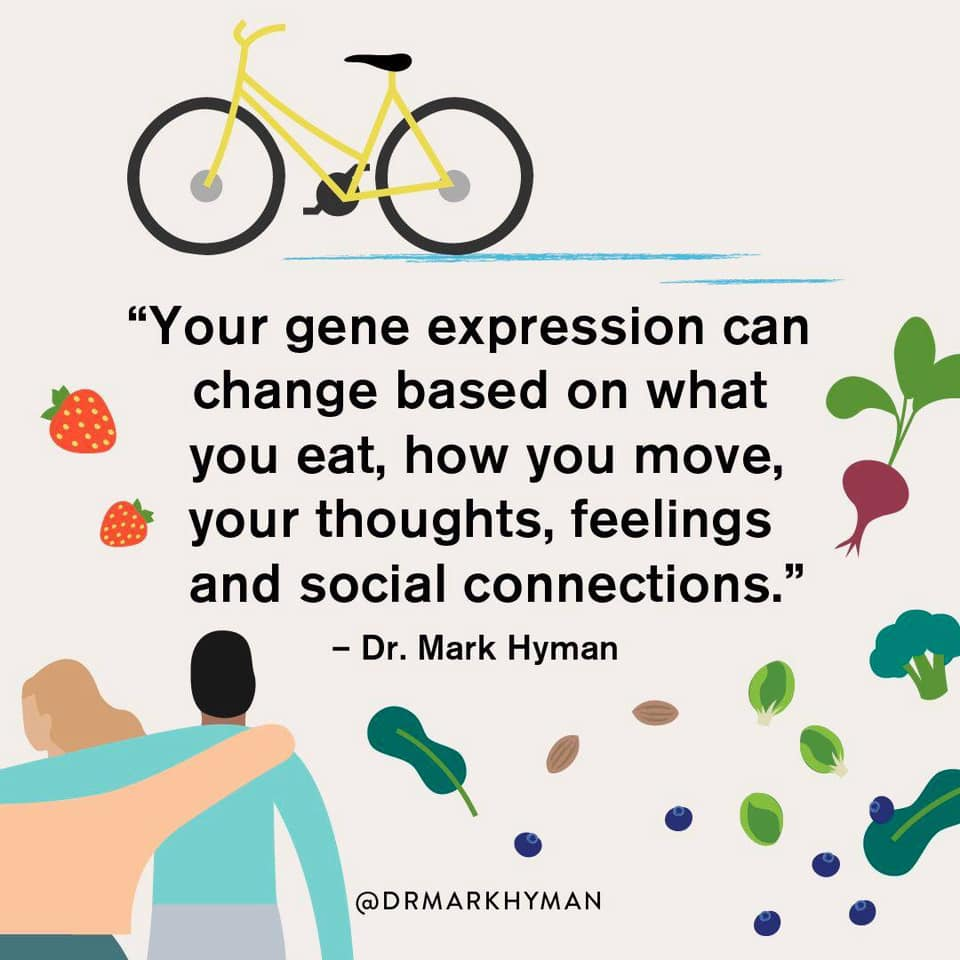Nutrigenomics: Can Food Change Your DNA?

Written by: Jamie May 22, 2019
Do you know what diseases you are likely to get or what vitamin deficiencies you are at risk for?
Did you know that what you eat may affect the likelihood of developing a disease?
Being aware of your specific genes can help you make more informed decisions about the foods and exercises that are right (or wrong!) for your body—all of which can help prevent disease*.
What is Nutrigenomics anyways?
Also known as nutrition genomics, Nutrigenomics is the process of how the nutrients in food affect gene expression. You can think of gene expression as a light switch: Your genes can turn “on” or “off” by things like food and environmental factors.
What about Nutrigenetics?
We will get more into this in a later post, but Nutrigenetics is, simply stated, your individual response to nutrients due to your unique DNA. A well-known example is lactose intolerance: If you have this gene, you more than likely avoid dairy because your body reacts more negatively to it than those who do not have the gene.
Why should you care?
The genes you have can influence your likelihood of developing cancers, hypertension, and inflammatory diseases like arthritis. The good news is that your genes aren’t the only determining factor! Awareness and preventive care are two of the most important tools in understanding and minimizing your risks.
What can you do about it?
- Get your genes tested with Secret Sequence!
- Supplementing your diet with fruits and vegetables can change your gene expression.[1]
- Supplementing with antioxidants like those found in blueberries may reduce DNA damage. They have even shown promise as a methylation inhibitor for people with MTHFR gene mutations (a gene which will be discussed in a later post and is associated with multiple symptoms and diseases including the metabolism of the B vitamin folate).[2]
- There are even very specific examples like for those who have the gene that predisposes them to colorectal cancer may find that reducing processed meat reduces that risk[3] —it may help prevent that switch from “turning on.”
What Comes Next?
These are just a few examples of the many ways you can benefit from Nutrigenomics; there is much more information already available, and new research on the topic is being done every day. You have the ability to learn more about your DNA, so why wouldn’t you want to learn what changes can make you a heathier you?
One more important reminder: you need to be in control of who you share that information with. Secret Sequence will never sell your data—we never even ask for your name! Safely learn more about yourself and your health: order our Nutrition, Health and Cancer, and Exercise reports today!
*Disclaimer: All information, content, and material of this website is for information purposes only and are not intended to serve as a substitute for the consultation, diagnosis, and/or medical treatment of a qualified physician or healthcare provider.
References:
[1] Williams, E.J.; Baines, K.J.; Berthon, B.S.; Wood, L.G. (2017) Effects of an Encapsulated Fruit and Vegetable Juice Concentrate on Obesity-Induced Systemic Inflammation: A Randomised Controlled Trial. Nutrients 9, 116.
[2] Kim, M., Na, H., Kasai, H., Kawai, K., Li, Y. S., & Yang, M. (2017). Comparison of Blueberry (Vaccinium spp.) and Vitamin C via Antioxidative and Epigenetic Effects in Human. Journal of cancer prevention, 22(3), 174–181. doi:10.15430/JCP.2017.22.3.174
[3] Benarba B. (2018). Red and processed meat and risk of colorectal cancer: an update. EXCLI journal, 17, 792–797. doi:10.17179/excli2018-1554
[4 The Norwegian University of Science and Technology (NTNU). (2011, September 20). Feed your genes: How our genes respond to the foods we eat. ScienceDaily. Retrieved May 15, 2019 from www.sciencedaily.com/releases/2011/09/110919073845.htm
